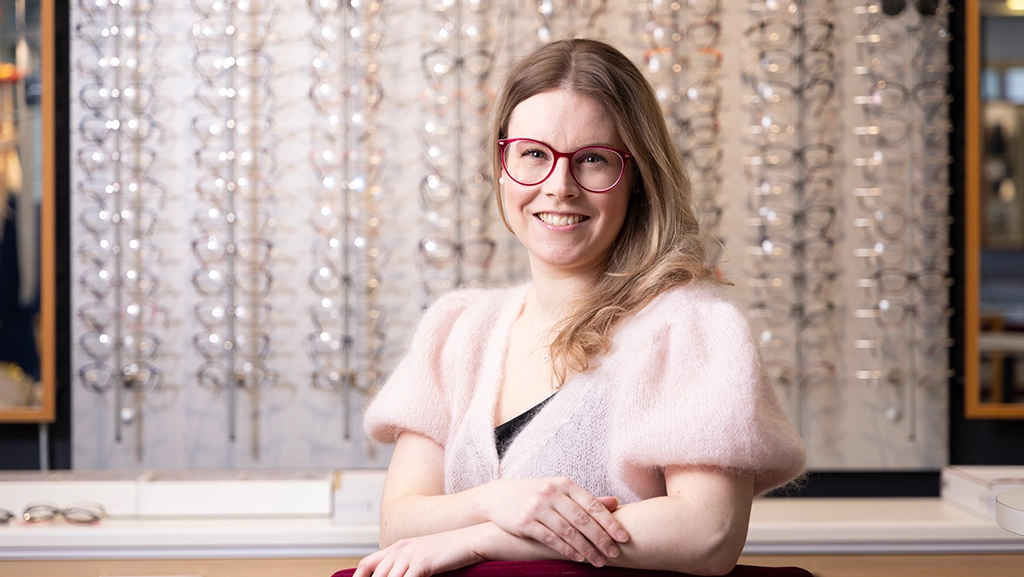When Anna Pietilä heard about Oamk’s Master’s Degree Programme in…

Master's Degree in Clinical Expertise, Clinical Optometry
The social and health sector is in a state of flux, with a major process of reform of social and health services and changing and evolving service systems and roles. Clinical experts and innovators are increasingly needed in a variety of social and health care roles and settings. The Master’s Degree in Clinical Expertise will enable you to identify and anticipate health sector development and the need of change, acquire evidence-based knowledge and develop and reform the health sector based on evidence.
Deepen your competence
The degree programme will enable you to deepen your skills in multi-disciplinary, broadly responsible clinical expertise, research-based work-life development and project and innovation work in the health sector. You will increase your competence in monitoring the development of research and professional practice and strengthen your capacity for lifelong learning while developing your professional skills as well as assessing and marketing your competences.
By studying for the master’s degree, you will develop an in-depth understanding of your profession, its role in working life and its relevance to society.
Studying the master's degree programme online
You will study the degree online. There are about 1-2 joint webinars per month, depending on your course choices. The Clinical Expertise degree programme also includes face-to-face learning periods, which are determined by your course choices. Exercises and simulations mainly require on-campus visits.
The focus of the training is on practical, multi-professional and interdisciplinary learning. Emphasis is placed on cooperation with working life and on teamwork and collaboration in multidisciplinary student groups. Higher education studies require commitment and an active, independent approach to work.
Studies included in the degree programme (90 ECTS)
The degree programme is structured around a competency-based approach, with a particular focus on three competency areas:
- clinical expertise in general clinical nursing, palliative care, mental health and substance abuse or clinical optometry
- research and development skills
- management skills.
There are four different orientations, of which one is in English:
- Clinical optometry
Specializing in clinical optometry consists of clinical biomedicine and advanced ocular sciences offered as flexible part-time-based education. Studies are composed of 6 theory modules. The first semester consists of scientific research studies (module 1), followed by two semesters of clinical professional studies (modules 2-6). Students will start their didactic studies online and study independently or by forming study groups. On-campus contact teaching is composed of clinical hands-on workshops. Altogether, four on-campus periods are arranged, each lasting two to three days. During their studies, students complete their thesis project.
The studies in the clinical optometry orientation are:
- clinical optometry (30 credits)
- research and development skills (10 credits)
- specialised and multidisciplinary optional studies (15-25 credits)
- optional studies (5 credits)
- thesis (30 credits).
Other orientations are in Finnish and you can read more about them on the Finnish web page.
At the beginning of your studies, you will complete a self-assessment of your competences, which will help you to define your learning objectives and will also serve as your personal study plan.
Some of the studies will be common to those pursuing a master’s degree in other fields. In joint studies, you also get to know and network with experts from other fields. You will study in multidisciplinary teams involving students from the fields of business, technology, culture and natural resources. Joint studies include courses in strategic human resource management, service design, project management, co-creation methods, procurement skills, sales and customer skills and entrepreneurship.
Master’s thesis
The studies include a 30-credit master’s thesis that develops both the working life and the region’s economy. The thesis is started at the beginning of the studies. You will assess the development needs in your field together with the actors in the world of work.
In carrying out and reporting on your master’s thesis, you will demonstrate your capacity for ethical, independent and forward-looking professional work. You will critically evaluate the results of your work and present them in an understandable way to different target groups
Employment after graduating
After graduation, you will be able to work in a variety of health professional roles as a coordinator or leader of multidisciplinary teams, working with other health professionals to develop evidence-based practice and introduce new approaches. You can also work as a consultant, as an independent practice manager in healthcare organisations or as an entrepreneur.
Qualification and post-graduate studies
The training follows the competence descriptions of the European Qualification Framework (EQF) level 7. The education will support your further study opportunities at universities and in the professional teacher education.
